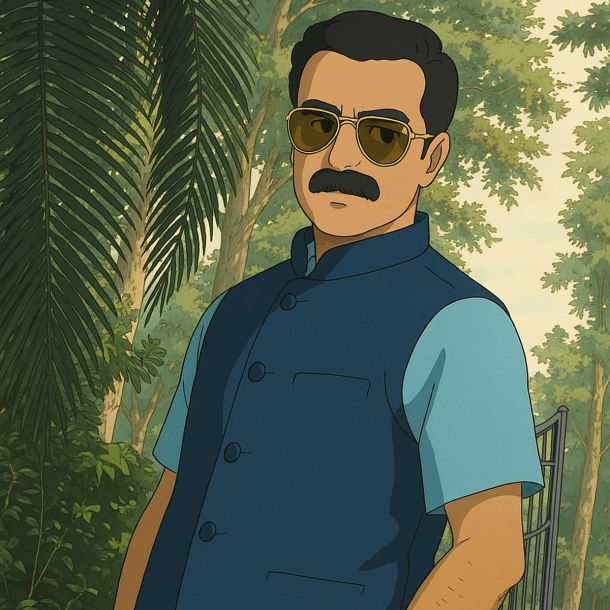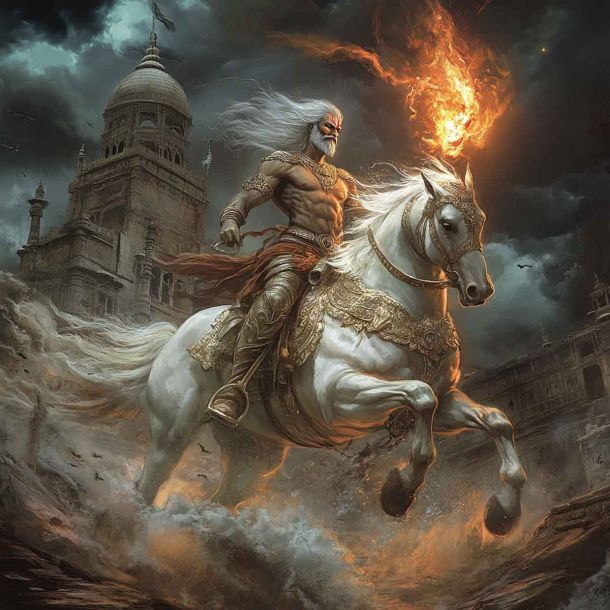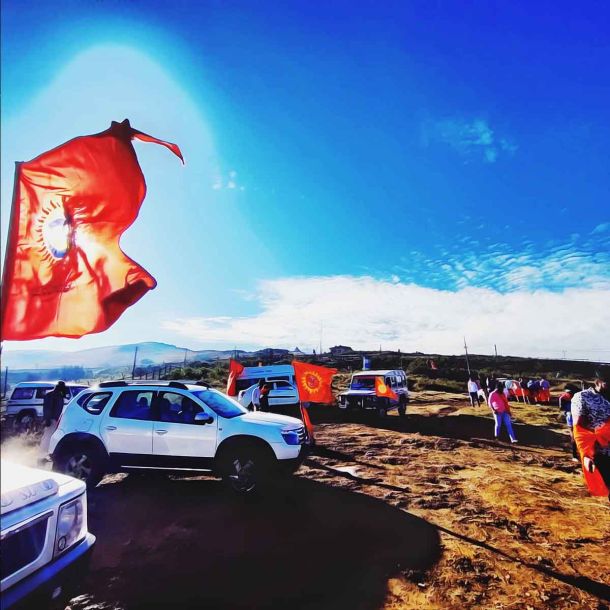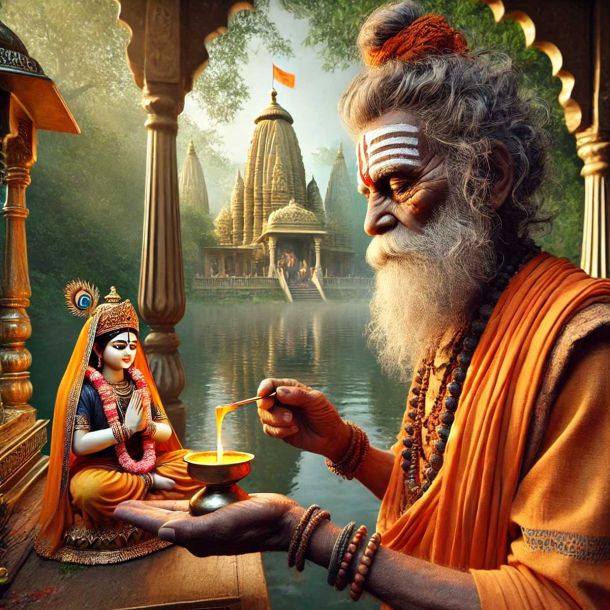More Coverage
Twitter Coverage
Satyaagrah
Written on
Satyaagrah
Written on
Satyaagrah
Written on
Satyaagrah
Written on
Satyaagrah
Written on
Join Satyaagrah Social Media
Paramahansa Yogananda: Spiritual journey of a saint who was known as The Father of Yoga in the West
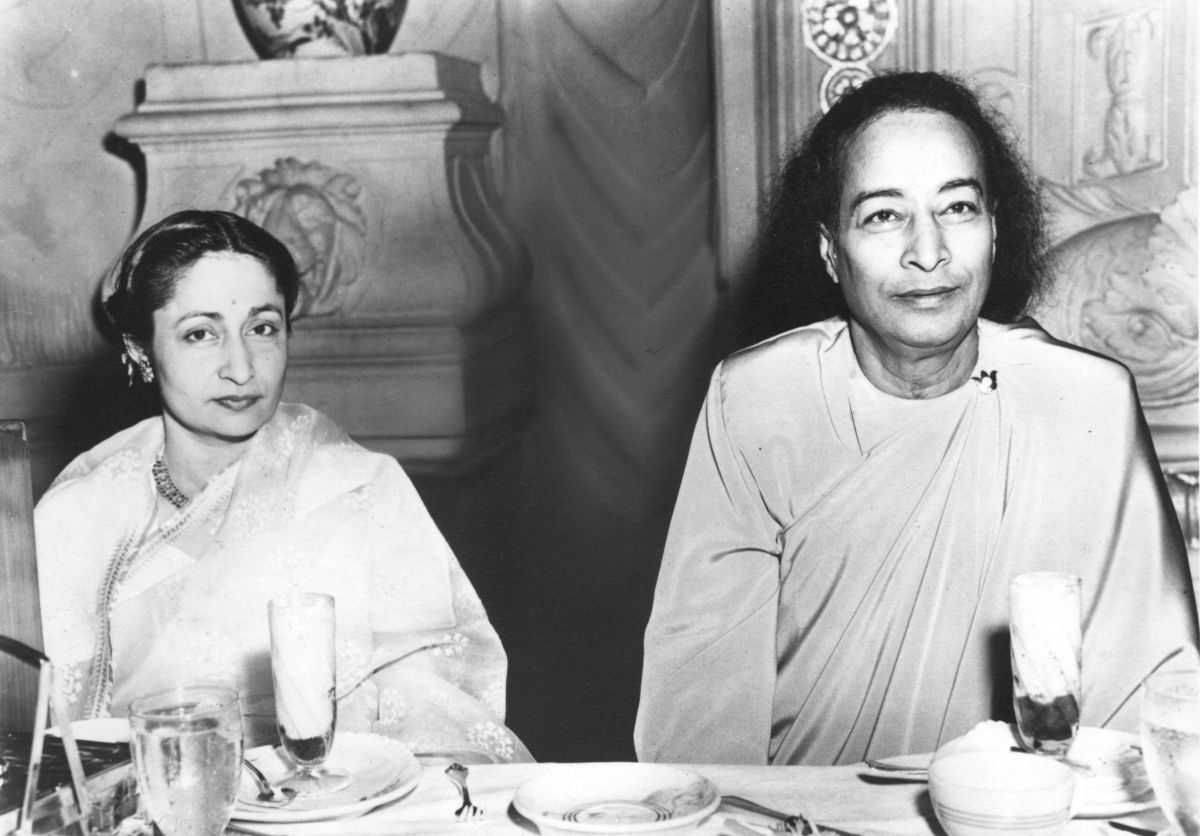
Long before Yogananda was born a Saint named Babaji lived in the Himalayas. It is learnt, one day Jesus appeared to him and told Babaji to send someone to the West to remind his people that the goal of life is to become one with God through inner communion. That person was to be Yogananda.
Yogananda was born in Gorakhpur, Uttar Pradesh, India to a devout Bengali Ghosh family. Young Mukund Lal Ghosh, as his name was, from his earliest years was very spiritual and far from ordinary by nature. During his youth he sought out many of India’s Hindu saints and sages hoping to find an enlightened teacher to guide him in his spiritual quest. At last, in 1910 at the age of 17 his dream was fulfilled when he met his Guru, Swami Yukteswar Giri for the first time. He has described this meeting with Yukteswar as a rekindling of a relationship that existed since lifetime. He says, “We entered a oneness of silence, words seemed the rankest superfluities. Eloquence flowed in soundless chant from heart of master to disciple. With an antenna of irrefragable insight I sensed that my Guru knew God and would lead me to Him.” Later on Yukteswar informed Yogananda that he had been sent to him by Mahavatar Babaji for a special purpose.
 |
Yogananda passed his intermediate Examination in Arts from the Scottish Church College, Calcutta, in June 1915 and then graduated from Serampore college. This gave him the opportunity to spend time at Yukteswar’s ashram in Serampore. In 1915 he took formal vows into the monastic Swami Order and became ‘Swami Yogananda Giri’. In 1917 Yogananda founded a school for boys in Dihika (West Bengal) that combined modern educational techniques with Yoga training and spiritual ideals.
|
In 1920, Yogananda went to United States as India’s delegate to attend an International Congress of Religious Liberals Convention in Boston. That same year he founded the Self-Realization Fellowship (SRF) to spread to the world his teachings on India’s ancient practices and Philosophy of Yoga and its tradition of meditation. By his East coast and cross-continental tours and lectures he attracted a number of celebrity followers.
The following year Yogananda established an international center for Self-Realization Fellowship in Los Angeles, California, which became the spiritual and administrative heart of his developing work. Yogananda was the first Hindu teacher of Yoga to spend most of his life in America. He lived there from 1920 – 1952 interrupted at times by his visits to India to meet his Guru or other living Western Saints abroad and places of spiritual significance.
|
In 1935 Yogananda was in India to visit Yukteswar and to help establish his Yogoda Satsanga work in India. According to his autobiography, it was now that he met Mahatma Gandhi and initiated him into the liberating technique of Kriya Yoga as Gandhiji showed keen interest to receive the Kriya Yoga of Lahiri Mahasaya. Anandamoyi Ma, renowned physicist C.V. Raman were disciples of Yukteswar’s Guru Lahiri Mahasaya. While in India, Yukteswar gave Yogananda the monastic title of ‘Paramahansa’. Paramahansa means “supreme swan”and is a title indicating the highest spiritual attainment. In 1936, while Yogananda was visiting Calcutta, Yukteswar died in the town of Puri.
On his return to America, Yogananda continued to lecture, write and establish churches in Southern California. He took up residence at the SRF Hermitage in Encinites, California which was a surprise gift from his disciple Rajarsi Janakananda. It was at this hermitage that Yogananda wrote his famous “Autobiography of a Yogi” and other writings. Yogananda’a aim was to disseminate specially to the Western world knowledge of our ancient scriptures and philosophy. Some of his aims were:
- To disseminate among the nations a knowledge of definite scientific techniques for attaining direct personal experience of God;
- To teach that the purpose of life is the evolution, through self-effort, of man’s limited mortal consciousness into God Consciousness; and to this end to establish Self-Realization Fellowship temples for God-communion throughout the world, and to encourage the establishment of individual temples of God in the homes and in the hearts of men;
- To reveal the complete harmony and basic oneness of original Christianity as taught by Jesus Christ and original Yoga as taught by Bhagavan Krishna; and to show that these principles of truth are the common scientific foundation of all true religions.
Echoing traditional Hindu teachings, he taught that the entire universe is God’s cosmic motion picture; and that individuals are mere actors in the divine play who change roles through reincarnation. He taught that mankind’s deep suffering is rooted in identifying too closely with one’s current role rather than with the movie’s director, or God. He taught Kriya Yoga and other Meditation practices to help people achieve that understanding, which he called Self-Realization. Self-Realization is the knowing – in body, mind, and soul – that we are one with the omnipresence of God.
Kriya Yoga: Yogananda’s main teaching is the Kriya Yoga. The science of Kriya Yoga is the foundation of Yogananda’s teachings. Kriya Yoga is “union (yoga) with the infinite through a certain action or rite (kriya). The Sanskrit root of kriya is kri, to do, to act and react.” Kriya Yoga was passed down through Yogananda’s guru lineage – Mahavatar Babaji taught Kriya Yoga to Lahiri Mahasaya who taught it to his disciple, Yukteswar Giri, Yogananda’s Guru.
Yogananda gave a general description of Kriya Yoga in his Autobiography. In his published work, The Self- Realization Fellowship Lessons, Yogananda gives his in-depth instruction in the practice of the highest yoga science of God-realization. That ancient science is embodied in the specific principles and meditation techniques of Kriya Yoga.
|
The Kriya Yogi mentally directs his life energy to revolve, upward and downward, around the six spinal centers (medullary, cervical. Dorsal, lumbar, sacral, and coccygeal plexuses) which correspond to the twelve astral signs of the zodiac, the symbolic Cosmic Man. One-half minute of revolution of energy round the sensitive spinal cord of man effects subtle progress in his evolution; that half-minute of Kriya equals one year of natural spiritual unfoldment. In his Autobiography he wrote that the “actual technique should be learned from an authorized Kriyaban (Kriya Yogi) of Self-Realization Fellowship (Yogoda Satsanga Society of India). Kriya Yoga is twice referred to by Lord Krishna, India’s greatest prophet in the Bhagavada Gita. – (Bhagvada Gita IV.29)
In 1945, Yogananda published his life story Autobiography of a Yogi”, it has been translated into 34 languages. In1999, it was designated one of the “100 Most Important Spiritual Books of the 20th Century”by a panel of spiritual authors convened by Phillip Zaileski and Harper Collins publishers.
As his time of death neared, he began hinting that it was time for him to leave the world. On 7th March 1952, he attended a dinner for the visiting Indian Ambassador to the US in Los Angeles. At the conclusion of the banquet, Yogananda spoke of India and America, their contributions to world peace etc. According to Daya Mata. A direct disciple of Yogananda, as Yogananda ended his speech, he read from his poem “My India” concluding with the words “Where Ganges, woods, Himalayan caves, and men dream God – I am hallowed; my body touched that sod.”
As he uttered these words, he lifted his eyes to the Kutastha center (the Ajna Chakra), and his body slumped to the floor. He is said to have entered Mahasamadhi. Yogananda’s remains are interred at the Forest Lawn Memorial Park in the Great Mausoleum normally closed off to visitors but Yogananda’s tomb is accessible in Glendale, California.
 Support Us
Support Us
Satyagraha was born from the heart of our land, with an undying aim to unveil the true essence of Bharat. It seeks to illuminate the hidden tales of our valiant freedom fighters and the rich chronicles that haven't yet sung their complete melody in the mainstream.
While platforms like NDTV and 'The Wire' effortlessly garner funds under the banner of safeguarding democracy, we at Satyagraha walk a different path. Our strength and resonance come from you. In this journey to weave a stronger Bharat, every little contribution amplifies our voice. Let's come together, contribute as you can, and champion the true spirit of our nation.
 |  |  |
| ICICI Bank of Satyaagrah | Razorpay Bank of Satyaagrah | PayPal Bank of Satyaagrah - For International Payments |
If all above doesn't work, then try the LINK below:
Please share the article on other platforms
DISCLAIMER: The author is solely responsible for the views expressed in this article. The author carries the responsibility for citing and/or licensing of images utilized within the text. The website also frequently uses non-commercial images for representational purposes only in line with the article. We are not responsible for the authenticity of such images. If some images have a copyright issue, we request the person/entity to contact us at satyaagrahindia@gmail.com and we will take the necessary actions to resolve the issue.
Related Articles
- A Different 9/11: How Vivekananda Won Americans’ Hearts and Minds
- History books should teach India’s civilisational, linguistic heritage, not unfounded claims: Parliamentary Committee meets to discuss NCERT books
- Jagannath Temple administration issues clarification on proposed sale of temple lands
- A new symbol of Hindutva pride, Shri Kashi Vishwanath Temple Corridor
- Birsa Munda: The tribal folk hero who was God to his people by the age of 25
- An Artisan Heritage Crafts Village: Indigenous Sustainability of Raghurajpur
- Unsung Heroine Pritilata Waddedar, Who Shook The British Raj at the age of 21
- Bhagwan Parashurama – Chiranjeevi Avesha avatar of Bhagwan Vishnu
- The forgotten temple village of Bharat: Maluti
- अथ रामचरितमानस प्रकाशन कथा: गीता प्रेस, गोरखपुर ने 1938 से रामचरितमानस का प्रकाशन शुरू किया
- Chipko Andolan: Cut me down before you cut them down
- 21-yr-old girl Bina Das shot Bengal Governor in her convocation programme at Calcutta University, got Padma Shri but died in penury
- Culture And Heritage - Meenakshi Temple Madurai
- Why India’s temples must be freed from government control
- Dangers of losing our identity: Guru Tegh Bahadur forgotten and Aurangzeb being glorified
